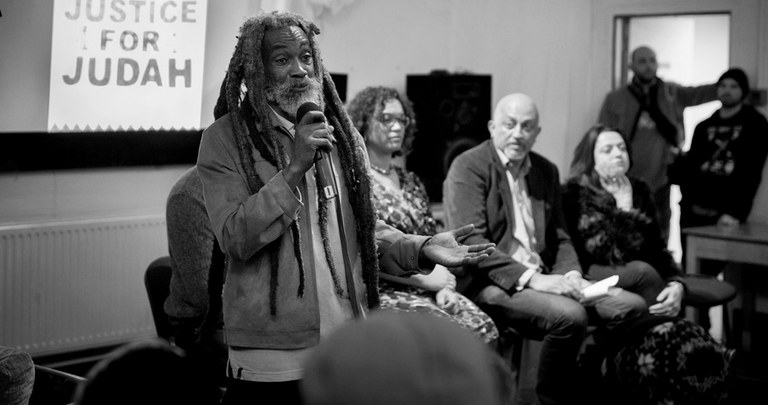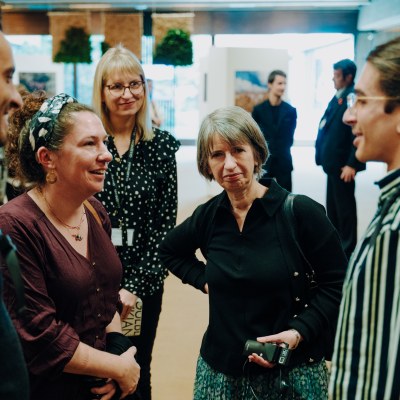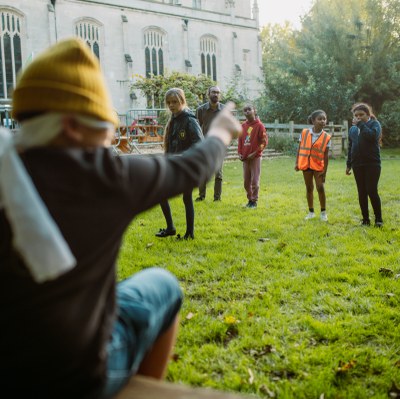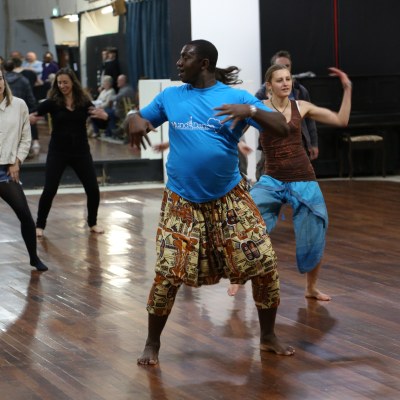Opinion: We Dream, They Rule

Justice4Judah campaign launch at the Kuumba Centre, 2017 ©MarkSimmons
We Dream, They Rule: The Curious Case of Kuumba and the Call for Civic Change
"The relationship can’t be one of a parent and child that moves from the paternalistic to the parasitic, where we're ready to bur n it all to the ground when things go wrong. Instead, it needs to be symbiotic and reciprocal: a partnership where communities and institutions share responsibility, through both sunshine and rain." Anon
This week, a civil ruling found in favour of the management committee of the St Pauls-based Kuumba Centre, leaving the challenger and asset owners Bristol City Council red-faced and out of pocket.
The case highlights the complexities of managing community organisations and civic infrastructure. It sits against the national backdrop of We’re Right Here’s latest call to action: the Museum of Broken Dreams exhibition, which will bring to Parliament stories of community-led projects that could have transformed lives but were held back by bureaucracy and inflexible systems.
On the one hand, the judge’s decision to recognise the Kuumba committee as trustees can be seen as a win for the people; affirming the group’s legitimacy as those entrusted with the building’s guardianship. On the other, with that recognition comes the full weight of trustee-like duties, including accountability for how the site is managed and the consequences if it falls short. The ruling is both an important validation of community asset management and a reminder of the risks involved with safe and effective stewardship .
With councils across the UK unable and unwilling to manage buildings like these, it is left to volunteer groups who may lack the resources to deliver against expectations of communities and statutory bodies over time.
Accountability matters, but there is often a disconnect between what is expected vs what is realistic and achievable from all parties. Faced with perpetual scrutiny, community groups must work at pace to meet expectations around good governance, stable finances and impactful delivery, moving buckets to catch leaks, metaphorically and literally.
We all want well managed civic infrastructure that meets community needs and isn’t a burden on the public purse; the issue is how? How do we get what everyone wants? News flash. We can’t. Someone will always have to pay.
Councils pay. I am sure no one got into public service to take buildings off people. But with policies outdated, mechanisms slow, and processes inconsistent and overly bureaucratic, attempts to eliminate risk end up undermining the very community resilience we’d hope under-resourced administrations might want to support.
When funding is needed at the start of a project it’s rarely available. By the time things reach crisis point, funds are inevitably found and responses become heavy-handed, adversarial, and costly. Buildings sit in limbo and it’s not even clear who’s even responsible for figuring out what to do next. We always pay.
Communities pay. What starts out for most as a vision for something better. But anyone who has served on a community board knows that the realities are far more treacherous. From my earlier days in Bristol to some more recent experiences, the well-intentioned actions of those who want the best for their building can, over time, descend into disputes, factions and bitter rivalries.
Ineffective governance mechanisms chew up and spit out most, leaving spaces in the hands of a die-hard few who struggle under the cumulative effects of this way of working. Over time, this takes a toll: assets gradually decline, opportunities to make things better are missed and the goodwill that could’ve gone into building vibrant, thriving spaces is depleted. Nobody wins.
And we pay. As we watch community leaders working tirelessly to keep buildings going, patching problems, navigating risk and jumping through hoops, we demand they do it backwards with high heels on. While councils struggle to balance budgets and meet statutory obligations, we shout, make FOI requests, caricature officers as the enemy, and treat capacity as an abstract concept rather than something finite and human.
The burden is on them surely, not us? We cry out for a fix as another building falls. We lament as problems that could have been solved with thousands escalate to millions. Our paternal government may dream up the latest national scheme funded by our taxes while we wait for it all to be put right by anyone by us. We walk past another boarded up space. Waiting. Wondering. In the end, we always pay.
As one trusted peer puts it, "If we all pay in the end, then what’s our responsibility as communities? It’s not enough to be passive recipients. The relationship can’t be one of a parent and child that moves from the paternalistic to the parasitic, where we're ready to burn it all to the ground when things go wrong. Instead, it needs to be symbiotic and reciprocal: a partnership where communities and institutions share responsibility, through both sunshine and rain."
One size does not fit all. Every building, every neighbourhood, every group has its own story and reality. And because of that messy pluralism this means mistakes, failure, metamorphosis, rebirth. If the goal is to protect and sustain these vital spaces, we need a different approach. One rooted in partnership, trust and dialogue.
This isn’t just a Bristol issue. At its heart, it is about how we structure and what we expect from our public services: How do we find funds over time to sustain the long-term frameworks needed for communities to take on – and keep hold of – the land beneath our feet? How can we accept failure within that model, so that scrutiny needed today isn’t a barrier for anyone taking a chance on something akin to it tomorrow? Without wholesale change in both structure and expectations, every transfer is a sticking-plaster and any success in the now risks being a problem in the future as the world changes and we can’t keep up. In this, we are all vulnerable.
It’s time to stop upholding systems not designed with us in mind and instead commit to a new way of collaborative, forgiving, human centric thinking that allows our civic and cultural spaces to thrive.
This starts with us. All of us.
This is an opinion piece by Emma Harvey, CEO
What you can do
Locally Support Bristol’s Roots of Resilience campaign - a network of Community Asset Organisations calling for a new framework: one that recognises the value of community assets not as liabilities on a balance sheet and places the council and communities as equitable partners in protecting our assets for the future. Write to your Councillor to ask them to support our recommendations.
Nationally Support We’re Right Here’s Museum of Broken Dreams campaign – they are asking you to write to your MP to invite them to an exhibition of community projects failed by bureaucracy and inflexible systems to coincide with the second reading of the English Devolution and Community Empowerment Bill. It is a last push for legislation that would shift power to local people and give communities the frameworks they need to take on and sustain vital assets.








